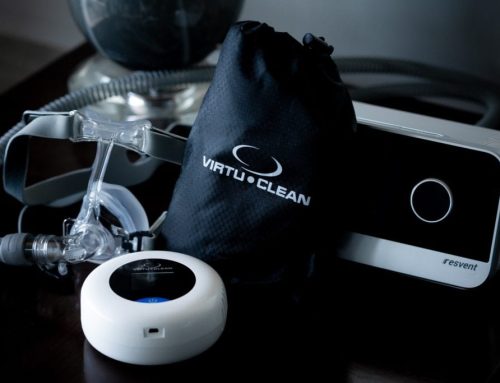Table of Contents
Is it Safe to Take Trazodone for Sleep Apnea?
Most people without experience of sleep apnea would not consider it to be a serious condition. However, as a sufferer, you will know firsthand that it can be debilitating at times. Not only does sleep apnea affect your quality of life in the short-term, it can also cause long term health complications that are incredibly difficult to recover from.
You only need to look at a few of the problems that can arise from apnea to put things into perspective:
- Daytime fatigue becomes an everyday reality. You will feel tired and lethargic, even if you think you’re getting enough sleep.
- Over time, your lack of sleep will lead to high blood pressure. This strains the entire cardiovascular system and increases your risk of developing heart disease.
- If you suffer from sleep apnea and don’t treat it, you are at increased risk of developing Type 2 diabetes. According to experts, 80% of diabetes sufferers are diagnosed with sleep apnea.
- Liver functionality can decline when you have sleep apnea. If you don’t get treatment, you could have a dramatically increased risk of developing liver disease.
- Metabolic syndrome is another condition that goes hand in hand with sleep apnea. This condition results in a larger waistline, obesity, high blood sugar levels, and high blood pressure.
This list is by no means extensive, but it already paints a concerning picture. If you’re one of the 18 million Americans that have the condition, you will no doubt have explored all your treatment options.
How Apnea is Treated
For most people, a CPAP machine provides immediate relief from apnea. By using positive air pressure, a CPAP machine will keep the airways open during sleep, eliminating occurrences of apnea. Higher quality sleep can prevent many complications from developing.

If you’re a well-informed apnea sufferer, you no doubt use a CPAP cleaner in addition to your CPAP machine. A cleaner keeps your mask and tubing free of pathogens by using UV light or ozonated air. Many of the best CPAP cleaners can remove up to 99% of the pathogens that multiply on contaminated equipment.
In addition to this, you may have considered pharmaceutical treatment. After all, the battle against apnea is a lifelong one. Every potential treatment should be considered while weighing up the advantages and risks.
This brings us to an important question that many people with sleep apnea eventually ask.
Is it safe to use trazodone when suffering from sleep apnea?
Trazodone Isn’t a Suitable Solution for Every Person
The link might seem strange to some. After all, trazodone is an antidepressant, while sleep apnea is a respiratory condition. However, recent studies have shown that there is a relationship between sleep apnea and depression. Some early research even suggests that apnea is a trigger for depression.
It’s not a stretch to imagine that low quality sleep, extreme fatigue, and other developing health conditions could lead to a depressive state. This is why it’s becoming more common for physicians to prescribe trazodone to people who are suffering from both apnea and depression. Up to 46% of people with apnea also have depression or anxiety, so the relationship is obviously real.
For trazodone to be safe, several other conditions need to be eliminated. This drug is not suitable for people who have:
- Liver or kidney disease (which may be caused by apnea).
- Cardiovascular (heart) disease.
- A history of seizures or epilepsy.
- A history of drug abuse.
- A history of suicide attempts or suicidal thoughts.
- Blood disorders.
- Bipolar disorder.
Eliminating the above, it’s quite possible that trazodone will be safe to treat your depression. It’s important to note that some people who take antidepressants can have suicidal thoughts when first taking the medication. It’s critical that you keep your physician informed of any changes in your mental state.
Combining Trazodone with Benadryl
Some people who suffer from both depression and anxiety may take Benadryl (an over the counter sleep medication) along with trazodone. This may be an area of concern, depending on the individual user.
Trazodone is known to excite the respiratory system. This means that in some ways it may actually help to reduce the symptoms of apnea. However, Benadryl can make the conditions of apnea worse and may lead to death in extreme circumstances. The medications don’t necessarily counter the effects of each other. This is to say that if you are taking trazodone while treating sleep apnea, you should avoid the use of Benadryl altogether.
The Final Verdict
Trazodone is used safely by many sufferers of sleep apnea who have also been diagnosed with depression. While this is promising, this information alone should not guide your choice of treatment. Only your physician can provide a recommendation while taking all related factors into account.
If you need treatment for depression, explain to your physician that you are currently using a CPAP machine to treat apnea. This will help them to make the best decision for any prescription.
When it comes to things like CPAP cleaners and equipment sterilization, there’s plenty of scientific evidence to support the safety of various devices. Using a CPAP machine cleaner comes with very little risk.
In contrast, drug treatment should always be approached very carefully. Always talk to your physician about any concerns you may have, and never take any form of medication that hasn’t been explicitly recommended by your doctor.


 Shop
Shop



